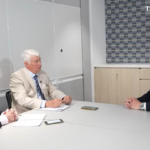Tanya Day’s Family Continue Fight to See Justice for Their Mother

Tanya Day’s children are continuing their campaign for justice in relation to their mother’s death in custody, following Victorian state coroner Caitlan English’s recommendation that two police officers involved in monitoring her be considered for criminal prosecution due to negligence.
Ms Day died in hospital on 22 December 2017 from a brain haemorrhage, which was caused after she fell and hit her head five times within the first hour of being placed in a cell at Castlemaine police station on 5 December.
The 55-year-old Yorta Yorta woman was being held as she’d been charged with public drunkenness, after being found asleep on a train.
Victoria police sergeant Edwina Neale and leading senior constable Danny Wolters were in charge of the police lockup during the four hours Ms Day was in detention. And they’re now to be considered for prosecution, as they failed to conduct adequate cell checks as per protocols.
The First Nations death in custody inquest also deviated from the regular course of such cases, as it led the Victorian government to propose revoking the offence of public drunkenness and it was the first case to consider whether systemic racism was a contributing factor.
Released on 9 April, the coronial findings fell short of asserting that systemic racism played a role in how police officers acted on the day.
And now, Belinda Day and her three siblings aim to make sure that the coroner’s recommendations result in actual criminal charges being laid.
A step towards justice
“For the coroner to take into consideration all the evidence and to see through the mistruths that were told leaves us very pleased,” Belinda Day told Sydney Criminal Lawyers.
“What we wanted was truth telling. And her making that referral shows that clearly mum’s health and wellbeing weren’t looked after,” she continued.
Ms Day’s oldest daughter further described the coroner’s decision as “one more step towards getting justice”, but she added that in the past referrals have been made and then dismissed, so it’s important to see that these charges come to fruition.
Indeed, despite the numerous Aboriginal deaths in custody that have occurred – and continue to occur – in this country, there has never been a single police officer or prison guard convicted of an offence related to such a fatality.
On systemic racism, the coroner found that it had played a role in the decision of the conductor, who woke Aunty Tanya on the train and subsequently called the police. However, Ms English wasn’t swayed to make that assertion when it came to the Victoria police officers.
“We’re disappointed,” said Day. “But, she was very close to saying that systemic racism had influenced Victoria police.”
The Yorta Yorta woman added that if you look at the treatment the same attending officers gave to another intoxicated woman on the same evening, there’s a stark contrast.
Systemic racism in play
Following a call from the conductor, senior constables Stephen Thomas and Aaron Towns arrived at Castlemaine station. And following the arrival of two other officers in a police van and deliberations on what was to be done, Ms Day was arrested and taken to the station in the van.
Senior constables Thomas and Towns then attended the Cumberland Hotel to deal with a “heavily intoxicated female”. The non-Aboriginal woman was taken to a friend’s house in their police vehicle. She wasn’t arrested and nor was she issued with a penalty notice.
Constable Thomas told the Coroner’s Court last year that they’d taken a “community type response” towards the drunk woman at the hotel, as police have discretion as to whether they choose to arrest and charge an intoxicated person with the offence of public drunkenness.
“The community policing approach they gave to that woman was not applied to mum,” Ms Day underscored.
Revoking a harmful law
Ms Day was arrested and charged with the offence of public drunkenness, contrary to section 13 of the Summary Offences Act 1966 (VIC). This is a law that has long been disproportionately applied to First Nations peoples.
The Royal Commission into Aboriginal Deaths in Custody recommended that all Australian jurisdictions abolish the detrimental offence in its 1991 report. And all have, except for Victoria and Queensland.
Again, coroner English made an unprecedented move, when she stated prior to the coronial inquiry that she’d be recommending the law be revoked at the completion proceedings. And the Victorian government announced in August last year that it’s moving to do just that in response to the case.
“It’s a very positive step. It has been over 30 years since the Royal Commission recommended that,” Ms Day made clear. “Had the Victorian government actually heeded those recommendations and implemented it many years ago, it’s quite likely mum would still be with us today.”
Lawyer Monique Hurley explained that “the Andrews government announced that it intends to decriminalise the offence of public drunkenness and replace it with a public health-based response.” Ms Hurley is part of the Human Rights Law Centre legal team handling the Day case.
For the greater community
“I am in constant awe of the Day family,” Ms Hurley declared. “The children have been relentless in their advocacy efforts on behalf of their mother. And this isn’t the end of the road for them, it’s just the beginning in seeking justice for Tanya Day.”
The senior lawyer added that the Human Rights Law Centre doesn’t believe fighting the injustices involved in deaths in custody should rest solely on Aboriginal families, and “governments across Australia should be proactive in fixing all discriminatory laws and policies.”
As for Ms Day, she’s well aware that her family’s struggle for justice isn’t over. She asserts that even though the results of the inquest were positive, they don’t change the fact that they will never have their mother back in their lives.
Belinda sees the legal battle that she and her siblings are currently engaged in as a continuation of the work her mother was involved in. “She was there supporting others through their own journey through deaths in custody, prior to her passing,” Ms Day concluded.
“What we are trying to do, as a family, is to protect our community from having to go through this again.”







